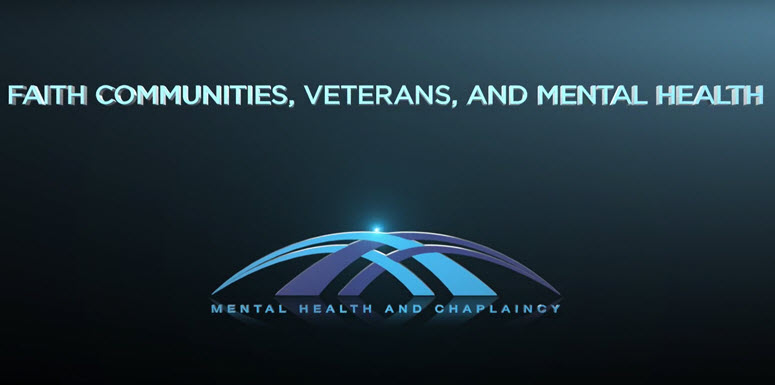VA Mental Health and Chaplaincy Innovates with Faith-Based Mental Health Outreach
By Susan Churchill, NBHIC Board of Directors
As mental health advocates all over the world continue to empower non-traditional caregivers in order to extend mental health support, the Veteran’s Administration is in the process of pioneering the faith-based VA Mental Health and Chaplaincy program. This is the VA’s way of not just task shifting but reaching across professional silos in order to providing deeper care integration for veterans, service members and their families in order to improve mental health outcomes. The VA Mental Health and Chaplaincy recognizes that by providing mental health training for chaplains and faith-based leaders, these spiritual care givers can support and extend the work of mental health professionals and community programs. Integrating a faith-based dimension to mental health treatment helps support patients even more deeply and as early research shows is leading to more effective outcomes.
The Mental Health Integration for Chaplain Services (MHICS) initiative began in 2014 with year-long training for a cohort of 40 Chaplains from VA and the U.S. military to enhance their care for persons with mental health needs. Currently, MHICS is in the process of being rolled out to a third cohort that includes National Guard and Reserve Chaplains. To date, interest in the program is very high and enrollment competitive. Graduates of the MHICS program complete 36 weeks of coursework as well as clinical training on how to effectively interconnect, integrate and coordinate care with the community and mental health professionals. The training consists of three 12 week courses. Each course contains five modules which take about eight to twelve hours to complete and include both online and in person instruction. Modules in the courses cover a balance of topics ranging from the history of psychotherapy and pastoral care, to more philosophical topics such as spirituality and linkages, to mental health to concrete techniques such as ACT, MI, and PST training, as well detailed information on specific topics such as suicide, post traumatic stress disorder, substance abuse, mood disorders and serious mental illness, to moral injury. Through this training, MHICS graduates can effectively integrate and collaborate with the community and mental health professionals in order to support veterans, service members and their families’ emotional, social, psychological and spiritual needs.
MHICS administrators are continuing to evolve and improve their training program through continued feedback and research on outcomes within the VA and military communities. As importantly, MHICS is working to extend this learning beyond VA and military chaplains to all faith-based leaders. By creating a series of free and readily available online training videos designed to help faith communities and clergy care for and support veterans and persons with emotional and mental health struggles, MHICS coursework hopes to be a universal resource. MHICS is also working with a number of clergy leadership groups throughout the United States in order to ensure that the MHICS course materials are both useful and utilized.
Like Dr. Vikram Patel and Dr. Sona Dimidjian who work to train and share information with non-traditional mental health caregivers in order to multiply care providers to people in need, MHICS understands that by providing spiritual leaders with information about modern mental health care that is respectful and appropriate for a wide variety of faiths, these faith leaders can reach people in need through non-traditional touch points and greatly increase the level of mental health support for people in their community by collaborating with mental health professionals. As MHICS continues to graduate new classes of chaplains and provides deeper and more comprehensive free online tutorial for all faith-based leaders, MHICS administrators believe that more deeply integrated mental health care will continue to be more widely available and ultimately mental health care will be more effective.
This is a revolutionary time for mental health care. On every front there continues to be breakthroughs. Discoveries in genetics, brain research and pharmacology are staggering. Cutting edge computing technology whether online or via virtual reality is improving care techniques even as you read this post. But as important as these breakthroughs are, the goal of providing universal access to comprehensive mental health care is a daunting challenge given the chasms of poverty, disparate geography and divergent belief systems throughout the globe. However, thanks to innovators such as Dr. Patel, Dr. Dimidjian and the VA MHICS team the revolution is well underway as these compassionate, audacious and passionate leaders use variations of task shifting to break down professional silos and empower more people with evidence-based mental health care information. Through innovative teaching techniques that embrace differences, these individuals and teams have hugely multiplied the amount of people who can access mental health care and cleared the way for more task shifting experiments.
To learn more about these initiatives and view information about the chaplain, faith community, and clergy training please visit the Mental Health and Chaplaincy homepage or email [email protected].
Share this Post

